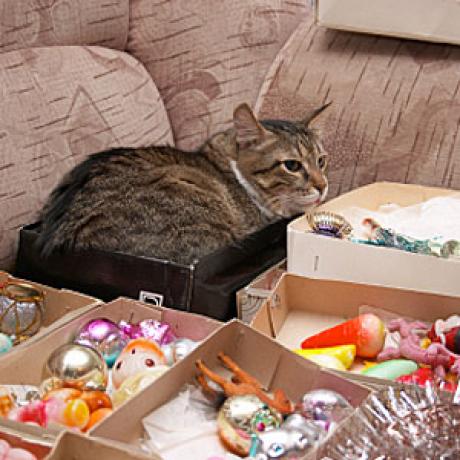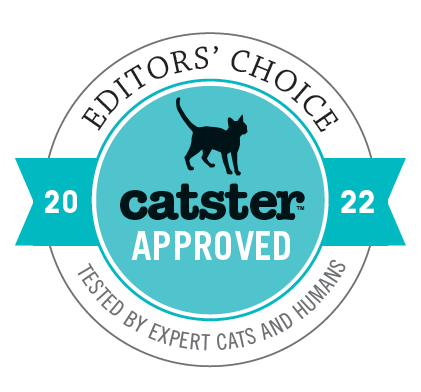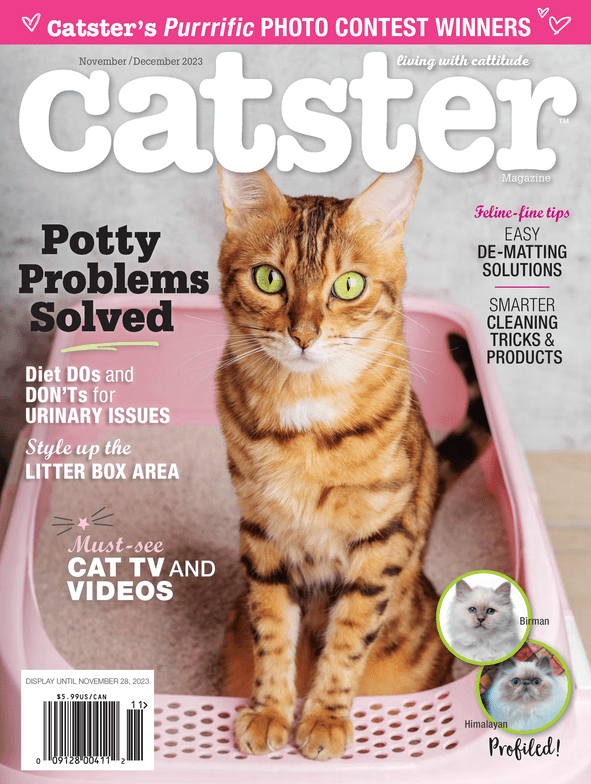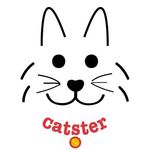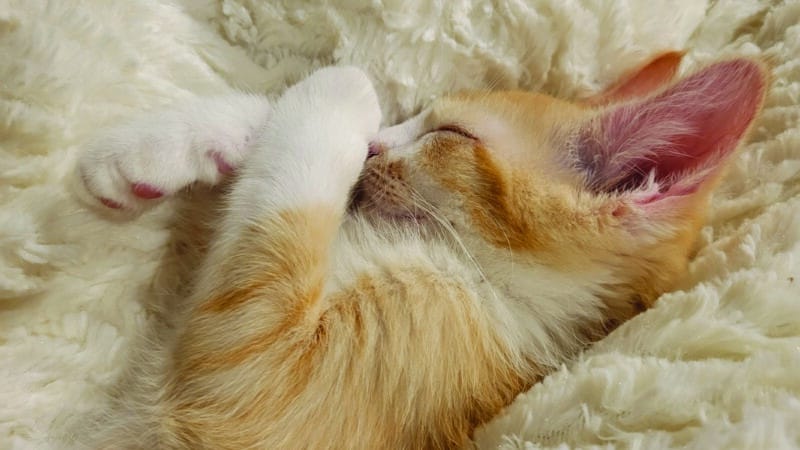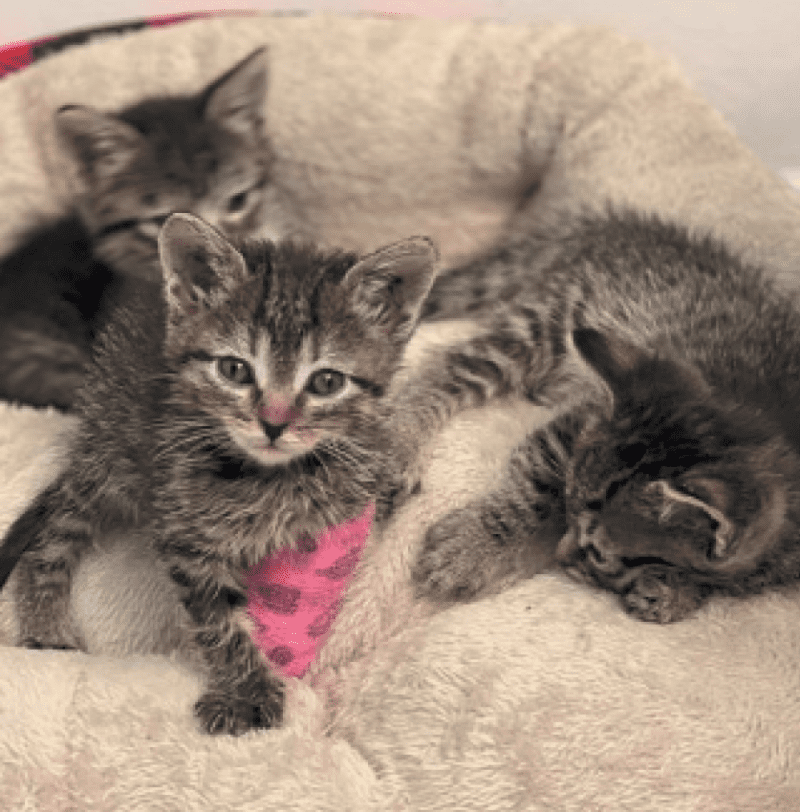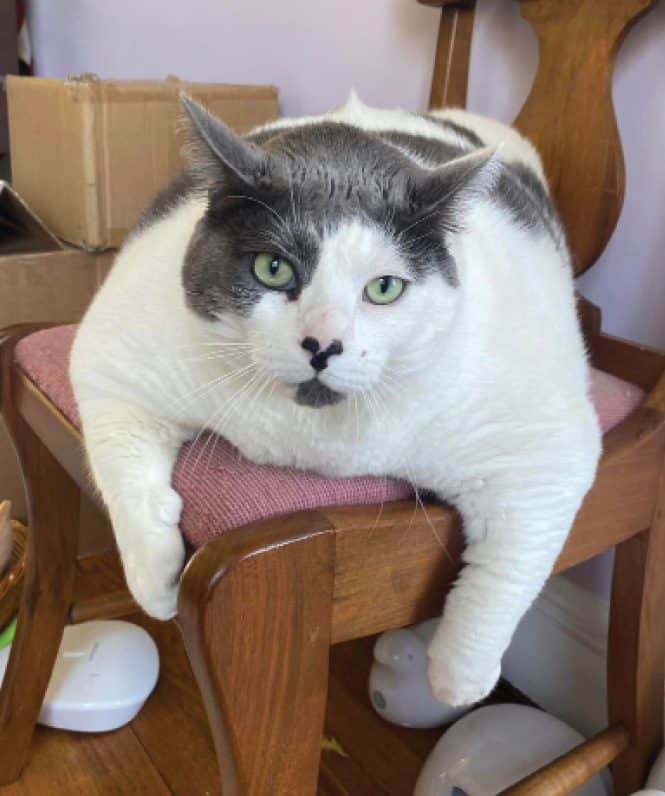Our homes are chock full of pet poisons and hazards, and they’re not just the obvious, like rat poison or that can of Comet. In 2009, the ASPCA’s Animal Poison Control Center (APCC) handled more than 140,000 cases of pets exposed to toxic substances, many of which included everyday household products. In addition to poisons, other hazards await your cat including rubber bands, tinsel and mini-blinds.
The 15 Most Common Household Hazards for Cats:
1. Human Medications – For several years, human medications have been number one on the ASPCA’s list of common hazards. In 2009 alone, the ASPCA managed 45,816 calls involving prescription and over-the-counter drugs such as painkillers, cold medications, antidepressants and dietary supplements. Pets often snatch pill vials from counters and nightstands or gobble up medications accidentally dropped on the floor, so it’s essential to keep meds tucked away in hard-to-reach cabinets.
2. Insecticides – In our effort to battle home invasions by unwelcome pests, we often unwittingly put our furry friends at risk. In 2009, the APCC’s toxicologists fielded 29,020 calls related to insecticides. One of the most common incidents involved the misuse of flea and tick products — such as applying the wrong topical treatment to the wrong species. Thus, it’s always important to talk to your pet’s veterinarian before beginning any flea and tick control program.
3. People food – Grapes, raisins, avocado and products containing xylitol, like gum, can seriously disable our furry friends, and accounted for more than 17,453 poisoning cases in 2009. One of the worst offenders–chocolate–contains large amounts of methylxanthines, which, if ingested in significant amounts, can cause vomiting, diarrhea, panting, excessive thirst, urination, hyperactivity, and in severe cases, abnormal heart rhythm, tremors and seizures.
4. Plants – Common houseplants were the subject of 7,858 calls to APCC in 2009. Varieties such as azalea, rhododendron, sago palm, lilies, kalanchoe and schefflera are often found in homes and can be harmful to pets. Lilies are especially toxic to cats, and can cause life-threatening kidney failure even in small amounts.
5. Veterinary Medications – Even though veterinary medications are intended for pets, they’re often misapplied or improperly dispensed by well-meaning pet parents. In 2009, the ASPCA managed 7,680 cases involving animal-related preparations such as non-steroidal anti-inflammatory drugs, heartworm preventatives, de-wormers, antibiotics, vaccines and nutritional supplements. Always consult your vet before giving your pet ANY kind of supplement.
6. Rodenticides – Last year, the ASPCA received 6,639 calls about pets who had accidentally ingested rat and mouse poisons. Many baits used to attract rodents contain inactive ingredients that are attractive to pets as well. Depending on the type of rodenticide, ingestions can lead to potentially life-threatening problems for pets including bleeding, seizures or kidney damage. Animals who ingest poisoned rodents will succumb to the poison, too. This includes your cat(s) and birds of prey.
7. Household Cleaners – Everybody knows that household cleaning supplies can be toxic to adults and children, but few take precautions to protect their pets from common agents such as bleaches, detergents and disinfectants. Last year, the ASPCA received 4,143 calls related to household cleaners. These products, when inhaled by our furry friends, can cause serious gastrointestinal distress and irritation to the respiratory tract. Additionally, cats who lick their paw pads after walking atop a floor treated with household cleansers are vulnerable to poisoning.
8. Heavy metals paint chips – Heavy metals such as lead, zinc and mercury accounted for 3,304 cases of pet poisonings in 2009. Lead is especially pernicious, and pets are exposed to it through many sources, including consumer products, paint chips, linoleum, and lead dust produced when surfaces in older homes are scraped or sanded.
9. Garden Products – It may keep your grass green, but certain types of fertilizer and garden products can cause problems for outdoor cats and dogs. Last year, the ASPCA fielded 2,329 calls related to fertilizer exposure, which can cause severe gastric upset and possibly gastrointestinal obstruction. Cocoa mulch can be poisonous when large amounts are consumed — usually more of a problem with dogs than cats.
10. Chemical Hazards – In 2009, the ASPCA handled approximately 2,175 cases of pet exposure to chemical hazards. A category on the rise, chemical hazards — found in ethylene glycol antifreeze, paint thinner, drain cleaners and pool/spa chemicals–form a substantial danger to pets. Substances in this group can cause gastrointestinal upset, depression, respiratory difficulties and chemical burns.
11. Tinsel, Thread, Dental Floss – Cats love string games, and they are quick to pounce on demon string whenever they see it. Fun! However, if your cat swallows some thread, it can cause severe intestinal damage and may require expensive surgery to remove.
12. Mini Blinds – Cats, especially kittens, can easily hang themselves on mini blind cording. Discourage climbing the blinds by firing the squirt gun or shaking a dozen or more pennies-in-a-can.
13. Treated Toilet Water – Keeping an automatic cleanser cake in the toilet is convenient, but it can be deadly if your cat drinks it. The best solution is not to use that method of sanitation. But if you can’t, then train whomever needs training on how to keep the lid down.
14. Rubber Bands – Some cats go nuts over rubber bands, but if swallowed they can be life-threatening. Keep them out of kitty’s reach.
15. Plastic Bags – Cats can suffocate themselves with plastic grocery bags or dry cleaning bags, so stash out of reach.

